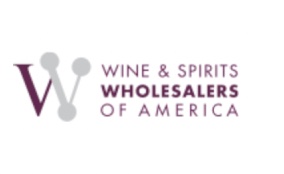C/- Grant Smith – Ellis
I do hope there is a Netflix scriptwriter following his posts – all this would make a perfect update to Parks & Recreation or The Office..
Here’s a taste of the latest episode
In shocking development, former Massachusetts CCC Chair Shannon O’Brien alleges State Treasurer Deb Goldberg violated court order in an attempt to keep secret details about a plot within the CCC to “take out” O’Brien as punishment for investigating serious allegations of cover-ups, abuse and misconduct within the agency.
Furthermore, say O’Brien’s lawyers, Goldberg attempted to spread this incorrectly redacted document to the press in an attempt to obfuscate the serious allegations directed at CCC staff (and currently being hidden from the public by way of these risky redactions).

A section of Thursday’s motion from former CCC Chair Shannon O’Brien, alleging violations of a court order by State Treasurer Deb Goldberg. (Released via MassCourts, 2/13/25)
O’Brien, in turn, is asking the court to order the entire document unsealed for pubic review as a sanction for Goldberg violating the court’s specific instructions as to redactions.
“Given the nature of the underlying proceedings, and the asserted bases for Plaintiff’s removal as Chair of the CCC, the Court is, frankly, skeptical that the administrative record itself is likely to contain a significant amount of protected personal information that satisfied the narrow definition of same under SJC Rule 1:24,” said judge Robert B. Gordan (who is specially assigned to the matter) in a prior ruling instructing Goldberg as to how to go about filing the redacted document in question. Read more background about that ruling here – https://www.patreon.com/posts/121109593

A section of the original court order that O’Brien alleges Goldberg violated. (Released via MassCourts, 1/30/25)
Then, in a strong, rebuke to Goldberg, Judge Gordon went on to say, …[T]he Treasurer has not identified, and the Court has not located, any case authority suggesting that an administrative record filed in the context of a review under G.L.c. 249 Section 4 or G.C.c. 30A is subject to the broader strictures of [the Fair Information Practices Act/FIPA], to claims of attorney-client privileges asserted after the subject information was disclosed in an administrative proceeding, or to a privet promised of confidentiality that a governmental agency may have extended to a complaining employee, such as would justify impoundment or redaction of the administrative record on those grounds.”
In turn, Goldberg’s shocking decision to attempt to hide most of the document in question from public view may well draw the ire of the court upon review thereof.
A hearing on the matter has been requested, but not yet scheduled, in Suffolk Superior Court.
’Brien alleges that a group of CCC staff members –attempting to cover up serious allegations of abuse, misconduct and corruption– “took out” O’Brien with pre-textual smears after she attempted to reform the beleaguered regulatory juggernaut.
Goldberg, O’Brien further alleges, is attempting to hide documents related to O’Brien’s suspension (and eventual dismissal) that may show a plot by Nurys Camargo, Shawn Collins, Cedric Sinclair and other CCC personnel to “take out” O’Brien with pretextual allegations of misconduct. Those documents are currently being kept private by Goldberg’s office because of the explosive allegations of misconduct (directed at some of Goldberg’s friends/allies) included therein.
Plenty more at
https://www.patreon.com/posts/new-overnight-in-122264111?utm_campaign=patron_engagement&utm_source=post_link&post_id=122264111&utm_id=8eb034e7-1b0e-497d-b0de-90b535ee76e9&utm_medium=email


 Cannabis News2 years ago
Cannabis News2 years ago
 One-Hit Wonders2 years ago
One-Hit Wonders2 years ago
 Cannabis 1012 years ago
Cannabis 1012 years ago
 drug testing1 year ago
drug testing1 year ago
 Education2 years ago
Education2 years ago
 Cannabis2 years ago
Cannabis2 years ago
 Marijuana Business Daily2 years ago
Marijuana Business Daily2 years ago
 California2 years ago
California2 years ago

















